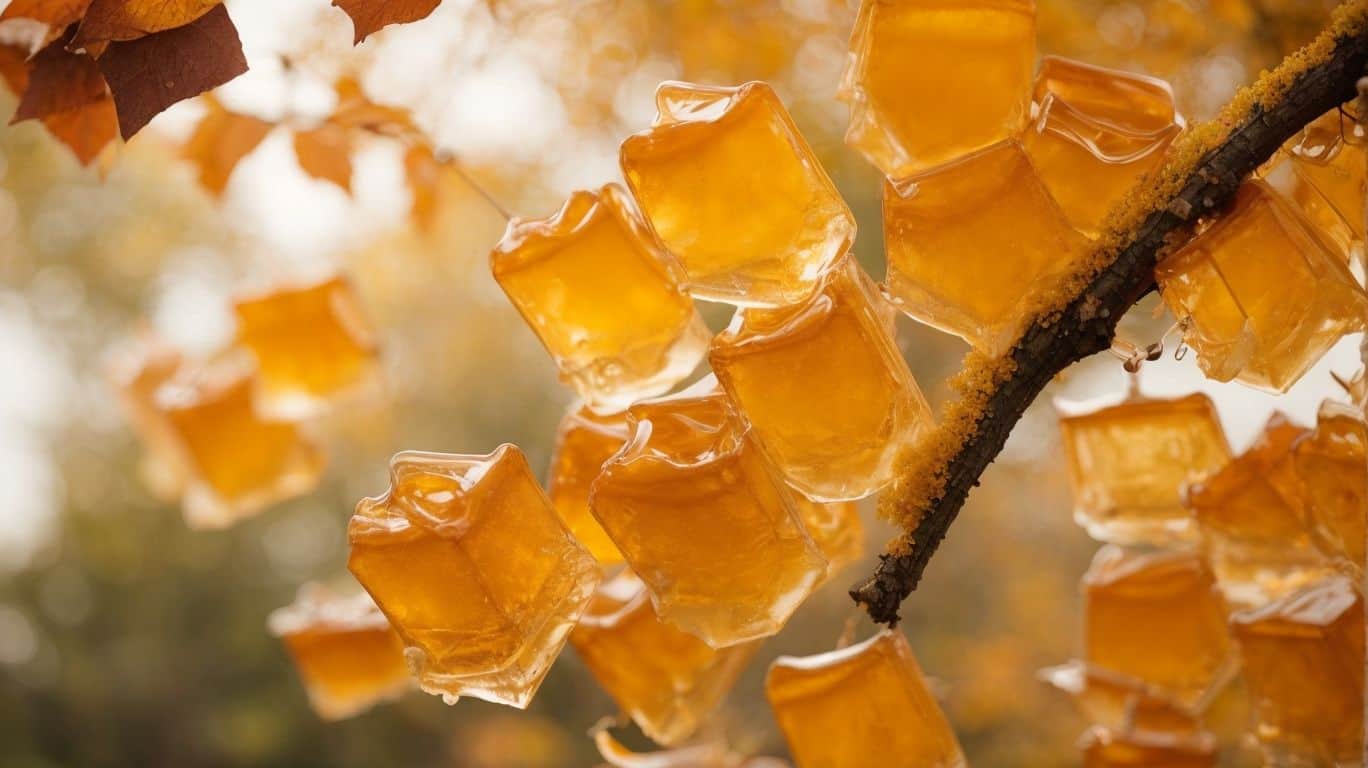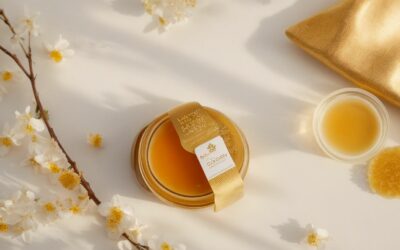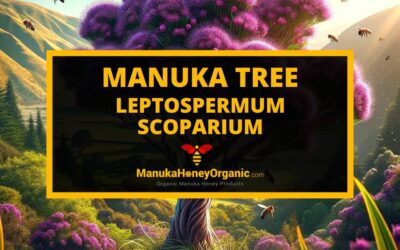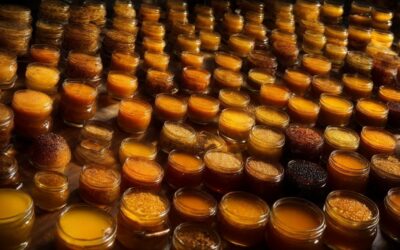Attention all health-conscious foodies! Are you torn between the delicious sweetness of honey and the natural goodness of maple syrup? You’re not alone.
In a world where we are constantly searching for healthier alternatives, it can be overwhelming to choose between these two popular sweeteners.
Let’s delve into the debate of honey vs maple syrup and unravel the truth behind their benefits and drawbacks.
How Are Honey and Maple Syrup Made?
- How Are Honey and Maple Syrup Made?
- What Are the Nutritional Differences Between Honey and Maple Syrup?
- How Do Honey and Maple Syrup Affect Blood Sugar Levels?
- What Are the Health Benefits of Honey?
- What Are the Health Benefits of Maple Syrup?
- Which Is Better for Weight Loss: Honey or Maple Syrup?
- Which Is Better for Cooking and Baking: Honey or Maple Syrup?
- Which Is More Environmentally Sustainable: Honey or Maple Syrup?
- What Are the Potential Risks of Consuming Honey or Maple Syrup?
- Which Is the Better Sweetener Option: Honey or Maple Syrup?
- Frequently Asked Questions
Honey and maple syrup are both natural sweeteners, but they are made through different processes. Here are the steps involved in making each:
- Honey:
- Honeybees collect nectar from flowers using their tongues.
- The nectar mixes with enzymes in the bees’ saliva as they store it in their honey stomachs.
- Back at the hive, bees regurgitate the nectar into beeswax cells.
- The bees fan their wings to remove excess moisture, thickening the nectar into honey.
- The cells are then capped with beeswax for storage.
- Humans harvest the honey by removing the beeswax caps and extracting the honey.
- Maple Syrup:
- Maple trees are tapped by drilling holes into the trunk.
- The tree sap naturally flows out of the taps and is collected in buckets or tubing systems.
- The sap is then transferred to a large container.
- The sap is heated to evaporate the water content, concentrating the sugars.
- Once the desired consistency and sweetness are reached, the syrup is filtered to remove impurities.
- The final product is then packaged and ready for consumption.
What Are the Nutritional Differences Between Honey and Maple Syrup?
Honey and maple syrup are two popular sweeteners that are often used interchangeably. However, they have distinct differences in their nutritional profiles. In this section, we will explore the nutritional differences between honey and maple syrup.
We will examine their calorie and sugar content, as well as the vitamins, minerals, and antioxidants that each contains. By understanding these differences, we can make more informed choices in our consumption of these sweet treats.
1. Calories and Sugar Content
When comparing the calories and sugar content of honey and maple syrup, there are a few key factors to consider:
- Calories: Honey contains approximately 64 calories per tablespoon, while maple syrup has around 52 calories per tablespoon.
- Sugar Content: Honey has a higher sugar content, with about 17 grams of sugar per tablespoon. Maple syrup, on the other hand, has around 12 grams of sugar per tablespoon.
Overall, if you are watching your calorie intake or monitoring your sugar consumption, maple syrup may be a slightly better option. However, both sweeteners should be used in moderation to maintain a healthy diet.
2. Vitamins and Minerals
When comparing the vitamins and minerals in honey and maple syrup, there are some notable differences. Here are some key points to consider:
- Honey contains small amounts of vitamins and minerals, including vitamin C, calcium, and iron.
- Maple syrup is a good source of manganese, providing about 37% of the recommended daily intake per serving.
- Both honey and maple syrup contain antioxidants, which can help protect against cellular damage.
- While honey and maple syrup offer some nutritional benefits, they should be consumed in moderation due to their high sugar content.
Pro-tip: If you’re looking for a natural sweetener that provides some vitamins and minerals, opt for raw honey. However, remember to use it sparingly as part of a balanced diet.
3. Antioxidants
Antioxidants play a crucial role in protecting our cells from damage caused by harmful free radicals. Both honey and maple syrup contain antioxidants that can benefit our health. Here are some steps to consider when discussing antioxidants in honey and maple syrup:
- Choose dark-colored honey or maple syrup, as they tend to have higher levels of antioxidants.
- Consider opting for raw honey, as it is less processed and retains more of its antioxidant properties.
- Keep in mind that the antioxidant content may vary depending on factors such as the floral source for honey and the tree species for maple syrup.
- Incorporate other antioxidant-rich foods, such as fruits, vegetables, and whole grains, into your diet for maximum health benefits.
Remember to enjoy honey and maple syrup in moderation as part of a balanced diet. Adding these natural sweeteners to your meals can provide a delicious and antioxidant-rich addition to your diet.
How Do Honey and Maple Syrup Affect Blood Sugar Levels?
Honey and maple syrup have different effects on blood sugar levels due to their composition and glycemic index. Consider the following steps when consuming these sweeteners:
- Glycemic index: Honey has a higher glycemic index (GI) than maple syrup, causing a quicker spike in blood sugar levels.
- Fructose content: Maple syrup has a higher fructose content, which is processed by the liver, resulting in a slower increase in blood sugar levels.
- Fiber content: Honey contains minimal fiber, while maple syrup has a small amount. Fiber slows down the absorption of sugar into the bloodstream.
- Portion control: Moderation is key. Both honey and maple syrup should be consumed in limited quantities to minimize the impact on blood sugar levels.
What Are the Health Benefits of Honey?
Honey offers a variety of health benefits thanks to its natural properties and nutrient content. It possesses antioxidant and anti-inflammatory properties that can strengthen the immune system and support overall well-being.
Furthermore, honey can alleviate coughs and sore throats, aid in digestion, and serve as a natural source of energy. It also boasts antibacterial properties that can aid in wound healing and prevent infections.
Additionally, honey contains trace amounts of essential vitamins and minerals. However, it is crucial to consume honey in moderation as it is high in calories and sugar.
What Are the Health Benefits of Maple Syrup?
Maple syrup offers numerous health benefits, serving as a natural sweetener that contains antioxidants and essential minerals such as manganese and zinc.
These antioxidants play a crucial role in combating inflammation and oxidative stress within the body. Moreover, maple syrup has a lower glycemic index than refined sugar, making it a healthier choice for regulating blood sugar levels.
It also contains compounds that may possess anti-cancer properties. However, it is important to consume maple syrup in moderation due to its high sugar content.
Which Is Better for Weight Loss: Honey or Maple Syrup?
When it comes to weight loss, it is important to consume both honey and maple syrup in moderation due to their high sugar content.
However, if you have a preference for a sweeter flavor, honey may be a better option as it contains more antioxidants and nutrients. On the other hand, maple syrup has a lower glycemic index, meaning it will not cause a rapid spike in blood sugar levels.
Ultimately, the key to successful weight loss is maintaining a balanced diet and monitoring overall calorie intake. It is always recommended to seek personalized advice from a nutritionist or dietitian.
Remember, moderation and portion control are essential for reaching weight loss goals.
Which Is Better for Cooking and Baking: Honey or Maple Syrup?
When it comes to cooking and baking, both honey and maple syrup have their own unique qualities.
- Honey: It provides a rich, floral flavor and is perfect for glazes, marinades, and dressings. Its natural thickness helps in providing moisture and binding ingredients in baked goods.
- Maple Syrup: It offers a distinct, sweet, and earthy flavor that complements pancakes, waffles, and desserts. Its liquid consistency makes it easy to mix into batters and sauces.
Choosing between the two for cooking and baking ultimately depends on personal preference and the desired flavor profile of the dish.
Which Is More Environmentally Sustainable: Honey or Maple Syrup?
When it comes to environmental sustainability, choosing between honey and maple syrup can be a tough decision. While both have their own unique benefits, maple syrup is generally considered to be the more environmentally sustainable option.
This is due to the fact that maple trees require less maintenance and resources compared to beekeeping.
Additionally, the production of maple syrup has a lower carbon footprint as it requires less energy and transportation. Furthermore, maple trees play a significant role in forest preservation and promoting biodiversity. So, if you’re looking for an environmentally friendly sweetener, maple syrup is definitely the way to go.
Fun fact: Did you know that Canada alone produces 71% of the world’s supply of maple syrup?
What Are the Potential Risks of Consuming Honey or Maple Syrup?
Consuming honey or maple syrup can have potential risks depending on certain factors. One risk is the presence of allergens in honey, which can cause allergic reactions in sensitive individuals. Maple syrup, on the other hand, is high in sugar and can contribute to weight gain and other health issues if consumed in excess.
Both honey and maple syrup can also be contaminated with pesticides or antibiotics if not obtained from reliable sources. To minimize these risks, it is important to choose organic and raw varieties of honey and maple syrup, and to consume them in moderation as part of a balanced diet.
Which Is the Better Sweetener Option: Honey or Maple Syrup?
When it comes to choosing a sweetener, deciding between honey and maple syrup can be a challenging task. Here are some factors to consider:
- Taste: Honey offers a rich and floral flavor, while maple syrup provides a distinct and earthy sweetness.
- Nutritional Value: Honey contains antioxidants and has potential health benefits, while maple syrup offers essential minerals like manganese and zinc.
- Usage: Honey works well in baked goods and dressings, whereas maple syrup is perfect for pancakes, waffles, and desserts.
- Sustainability: Opting for local and organic options for both honey and maple syrup can support responsible farming practices and contribute to environmental conservation.
Frequently Asked Questions
What are the main differences between honey and maple syrup?
The main difference between honey and maple syrup is their source. Honey is made by bees from the nectar of flowers, while maple syrup is made from the sap of maple trees. They also have distinct flavors and nutritional profiles.
Which one is healthier, honey or maple syrup?
Both honey and maple syrup have health benefits, but in different ways. Honey is known for its antibacterial and antioxidant properties, while maple syrup contains higher levels of minerals like calcium and iron. Ultimately, the healthiest option will depend on an individual’s dietary needs.
Can honey and maple syrup be used interchangeably in recipes?
Yes, honey and maple syrup can be used interchangeably in most recipes as sweeteners. However, it is important to note that they have different consistencies and flavors, so adjustments may need to be made for taste and texture. For example, honey is thicker and sweeter than maple syrup, so you may need to use less of it in a recipe.
What is the process of making honey and maple syrup?
Honey is made by bees collecting nectar from flowers, which they then store and break down into honeycomb cells. The nectar is then evaporated and stored in the cells until it becomes thick and gooey. On the other hand, maple syrup is made by tapping maple trees and collecting the sap, which is then boiled down to remove excess water and create the sweet syrup.
Is one of them more sustainable than the other?
Both honey and maple syrup have sustainable production methods, but honey may be considered more sustainable as it is a natural byproduct of bees’ pollination process. Maple syrup production requires tapping trees and boiling the sap, which can be energy-intensive processes.
Can honey and maple syrup go bad?
Both honey and maple syrup have a long shelf life due to their high sugar content, but they can go bad if not stored properly. Honey can crystallize over time, but it can be easily re-liquefied by heating it in a warm water bath. Maple syrup can also grow mold if not stored in the refrigerator after opening.
I’m a Manuka honey enthusiast and creator of Manuka Honey Organic, a blog where I share my journey with authentic Manuka honey from New Zealand. I want everyone to learn about the healing powers of Manuka honey.





